Kamal Adwan Hospital is latest hospital to be bombed in Gaza. Who was Kamal Adwan?
By Iqbal Jassat
Since international attention is focused on the tragic fate of Kamal Adwan Hospital in northern Gaza, bombed by Israel’s murderous army, with its medical team terrorized, detained and killed, it is instructive to remember the man after whom the facility is named.
Kamal Adwan was one of the top leaders of the Palestine Liberation Organisation (PLO) with a distinguished record of armed struggle alongside the movement leader Yasser Arafat during the 1950s leading up to the 1970s when he was assassinated by the regime’s notorious spy agency Mossad.
Decades before the disastrous era of collaboration that resulted in capitulation known as the Oslo Accords, Adwan was known as a committed Palestinian freedom fighter.
As chief of operations for the PLO, he was responsible for armed operations against military targets in the Israeli-occupied territories.
And as a founding member of Fatah, Adwan was a top leader of the Black September Organization.
Interestingly, the name “Black September” arose during Jordan's violent clampdown on the PLO when Palestinians called for the overthrow of Jordan’s monarchy.
It began on 16 September 1970, when Jordan's British-allied monarch King Hussein declared military rule to combat and eliminate the growing power of the PLO-affiliated Fedayeen.
Adwan's short but distinguished life as an outstanding cadre of Palestine's freedom struggle is immortalized across the Occupied Palestinian Territories, having the hospital in northern Gaza named after him.
From the archives of the Yasser Arafat Foundation, we learn a great deal about the extraordinary contribution of this amazing revolutionary leader.
Widespread damage was seen surrounding Kamal Adwan Hospital in Beit Lahiya, northern Gaza Strip after the Israeli forces withdrew from the hospital complex.
— Palestine Highlights (@PalHighlight) October 27, 2024
Follow Press TV on Telegram: https://t.co/fvRn3KuApw pic.twitter.com/6wq0BuSlH6
"Kamal Adwan was born in 1935, in the village of Barbara near the city of Ashqelon. During the Nakba of 1948, his family was displaced to the Gaza Strip. Adwan attended schools in the Gaza Strip, and joined the Muslim Brotherhood,” the website states.
"Following the disagreement between Egyptian President Gamal Abdel Nasser and the Muslim Brotherhood in 1954, Adwan left the Muslim Brotherhood. Believing in the armed fedayee struggle, he sought another path and established an independent cell of 12 young men.
"In 1956, Adwan participated in the resistance to the Israeli occupation of Gaza City. He was committed until the end of the occupation – after the Tripartite Aggression on Egypt.
"At secondary school, Adwan met Yasser Arafat, Khalil Al-Wazir and others, who would later become the leaders of Palestinian revolutionary activity. Adwan then went to Egypt to study petroleum engineering. However, due to his difficult financial situation, he was forced to abandon higher education after two years and left for Saudi Arabia to work in the petroleum sector.
"Adwan was in contact with Arafat, Al-Wazir, and the other founders of the Palestinian National Liberation Movement (Fatah) in Kuwait. He established a Fatah branch office in Saudi Arabia and, after moving to Qatar to work in the petroleum sector, led the Fatah branch there.”
In 1964, Adwan was elected a member of the first Palestinian National Council.
"Adwan devoted his time and effort to the revolutionary activity led by Fatah, and returned to Amman, Jordan, in April 1968, to head the PLO Media Office. He established the office as a media agency with a wide-ranging Arab and international network and an independent newspaper,” the website states.
"Adwan participated in the battles to defend the Palestinian Revolution in September 1970, as well as in the Jarash-‘Ajlun battles of 1971.”
Israel strikes Gaza’s Kamal Adwan Hospital, killing 4, including 2 childrenhttps://t.co/G99a4mJ9Xv
— Press TV 🔻 (@PressTV) October 31, 2024
Adwan left Jordan with the Palestinian Revolution leaders and forces to Syria and Lebanon.
He was then elected to the Fatah Central Committee at its third Conference in January 1971. In addition to running the PLO Media Agency, Adwan supervised the Western Sector (Occupied Territory).
"Adwan was martyred at his home on Fardan Street in Beirut on the 10th of April 1973, during an Israeli Intelligence Agency (Mossad) operation that also killed, extrajudicially, Kamal Nasser and Abu Yousef Al-Najjar. Ehud Barak, who became Prime Minister of Israel in 1999, led the operation,” it notes.
As a key figure in Palestine's old resistance against the illegal creation of the Zionist entity on the occupied Palestinian land, Adwan's history of being rendered a refugee resulting from Zionist war crimes during the 1948 Nakba parallels the experience of millions of Palestinians.
Ehud Barak, who led the terrorist commando unit that assassinated Adwan and several fighters, is incorrectly viewed as a "dove" in comparison to Netanyahu and his criminal gang of warlords.
Far from being seen as a "saintly grandfather", Barak's career in the military was stained with the blood of innocent Palestinians, having served in various command positions including Head of the terrorist army's intelligence unit. A war criminal indeed.
Adwan's martyrdom in Beirut reminds us that Israel’s violation of Lebanon’s sovereignty has been an ongoing defiance of international laws.
Iqbal Jassat is an executive member of Media Review Network, Johannesburg, South Africa.
(The views expressed in this article do not necessarily reflect those of Press TV)
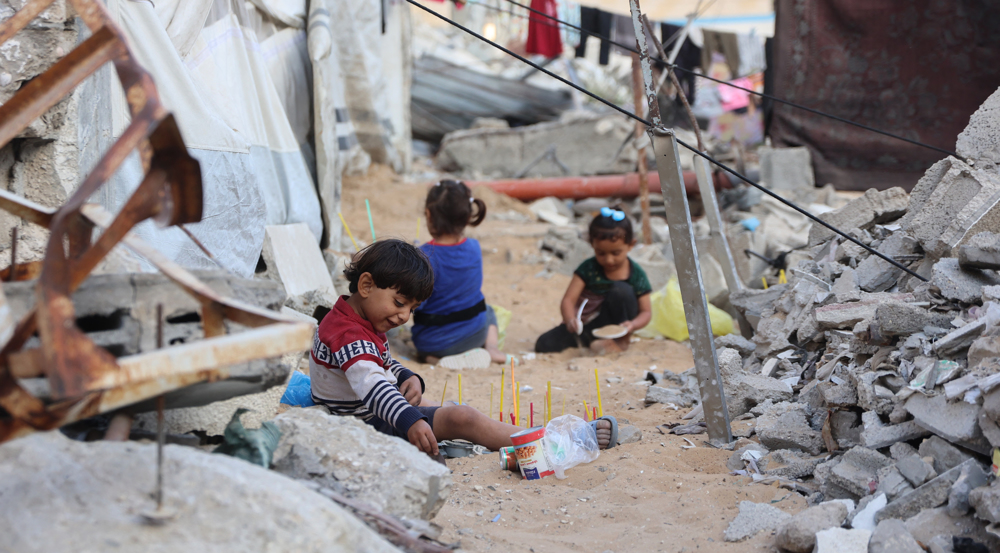
51 civilians killed in Gaza as Israel ramps up attacks amid all-out blockade
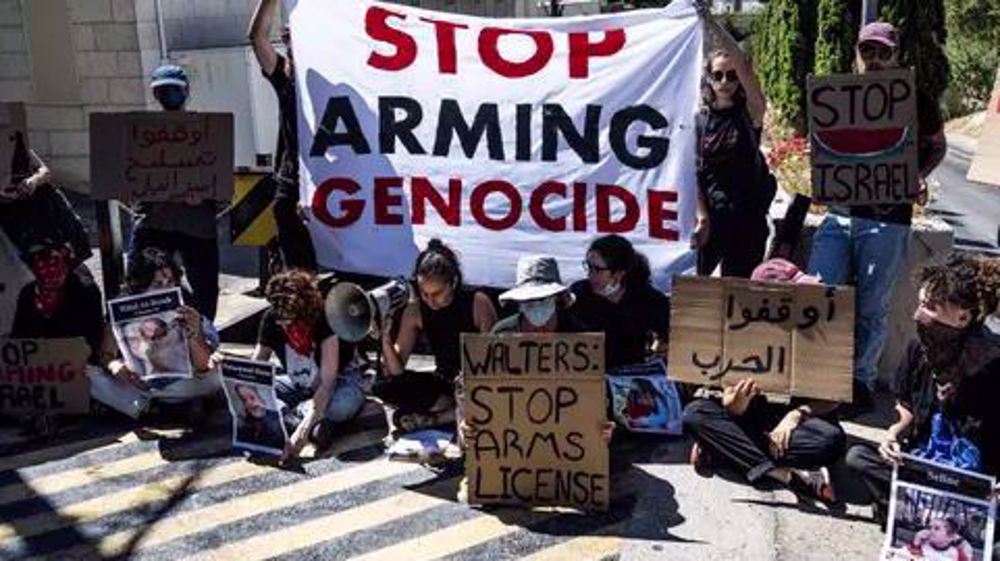
Israel and its arms suppliers ‘must be stopped,’ UN says
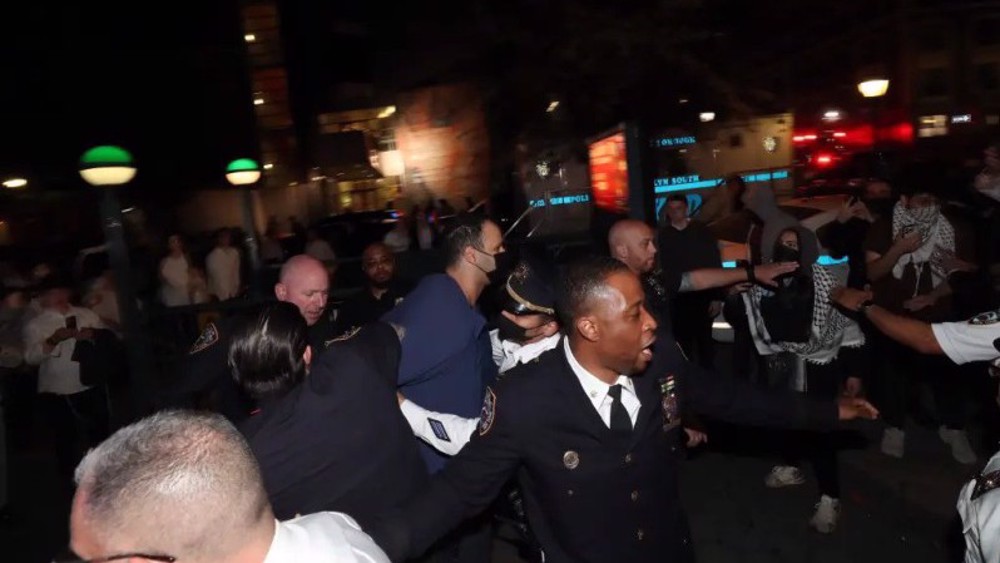
Keffiyeh-wearing Jewish woman assaulted by pro-Israel mob in New York
‘Biggest genocide of century’: Iran calls for intl. mobilization to stop Israeli crimes in Gaza
Swiss fencing team snubs Israeli flag over Gaza genocide
Iran ‘strong, confident’ enough to thwart malicious external actors’ plots: Araghchi
Iran foils ‘extensive, sophisticated’ cyberattack on national infrastructures: Official
VIDEO | Iran-US agreement: Too far, too near
VIDEO | Iran-Algeria alliance
Pezeshkian: Iran welcomes foreign investors, international traders
VIDEO | Types of enmity towards Israel


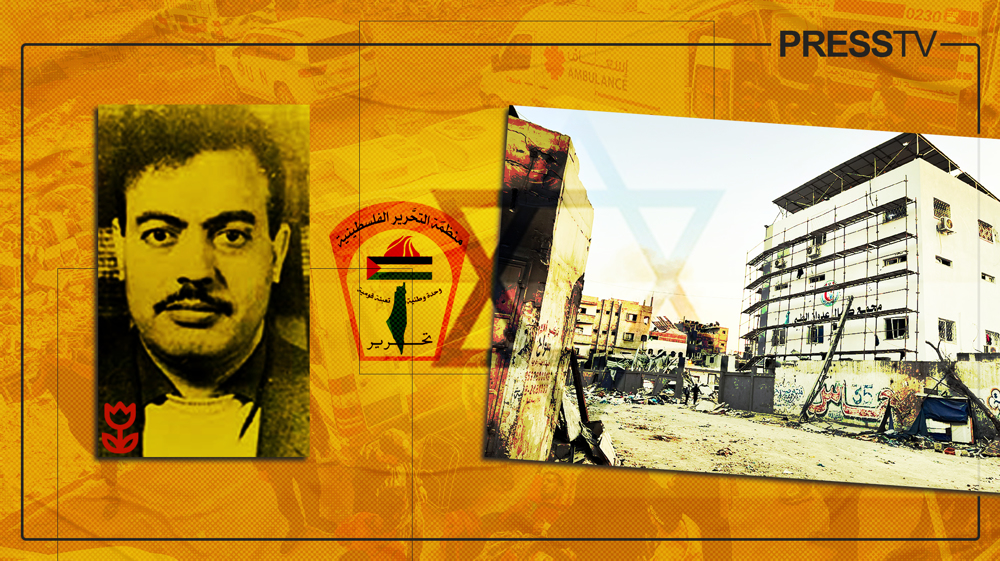



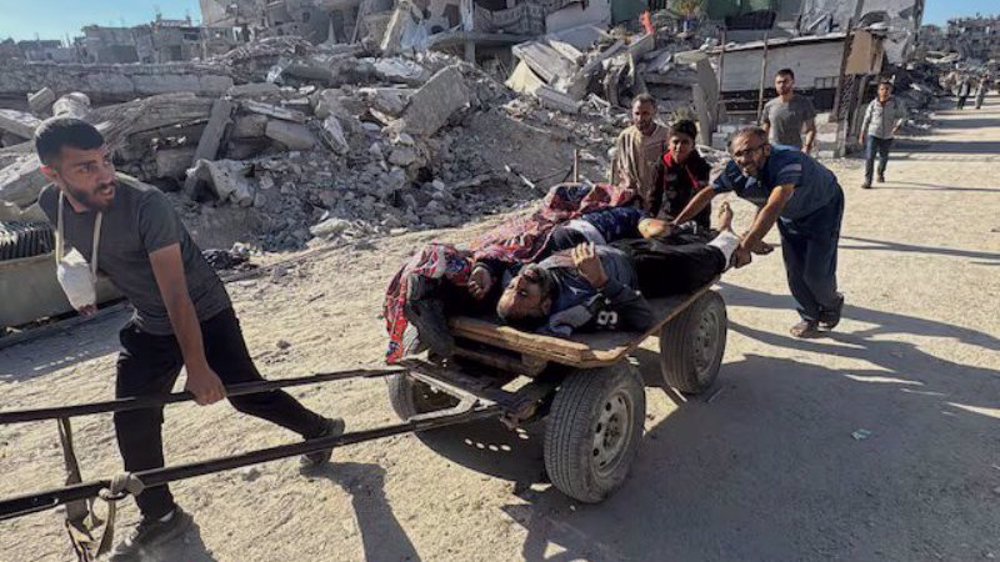
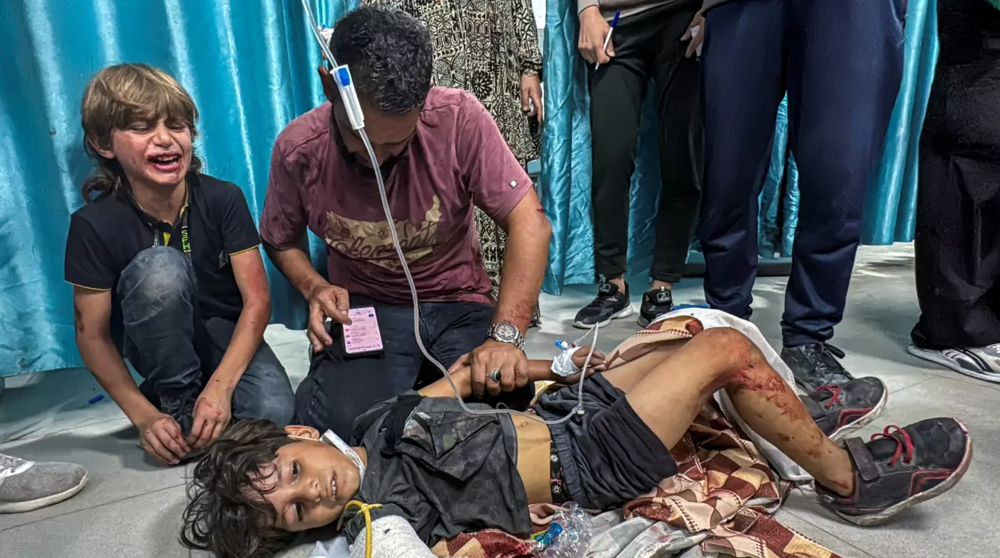

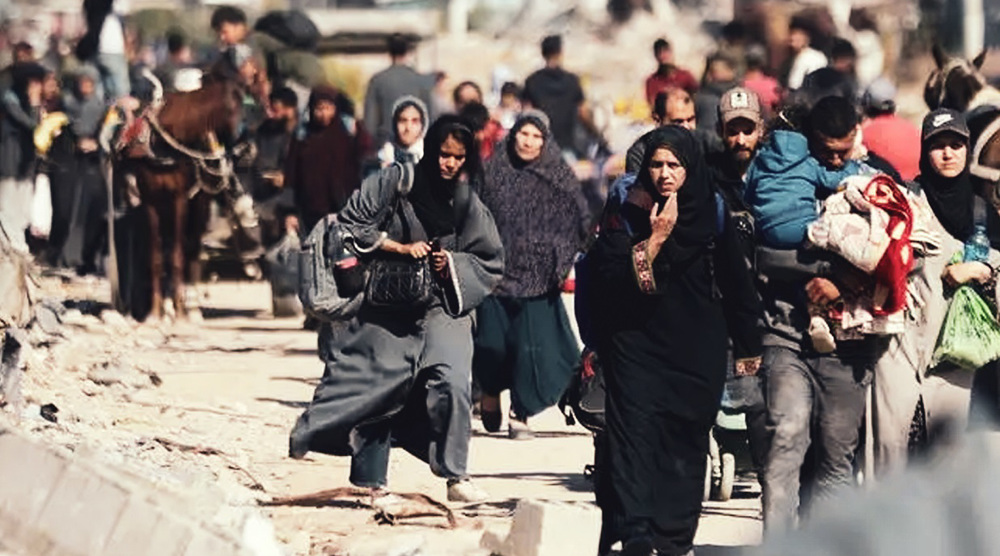
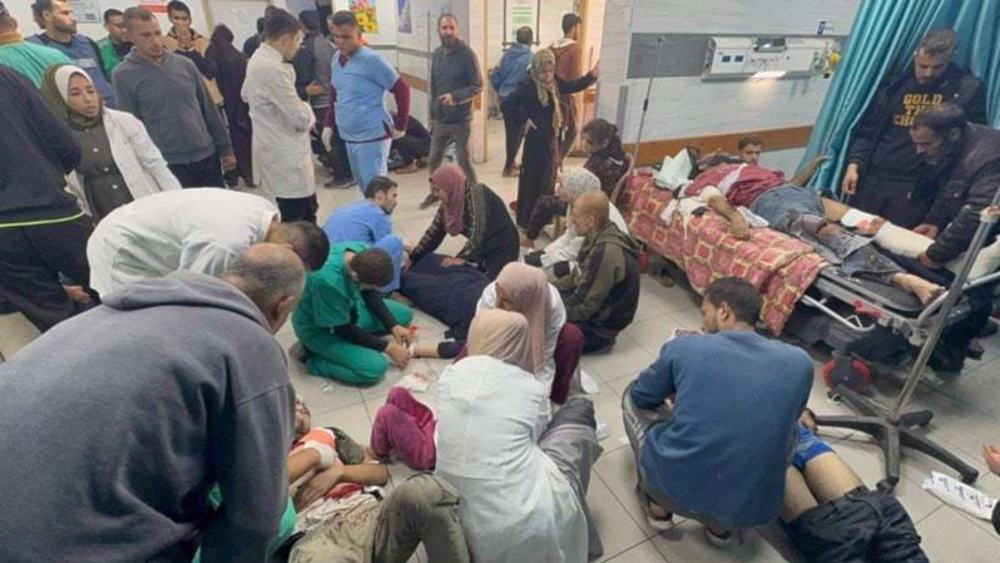

 This makes it easy to access the Press TV website
This makes it easy to access the Press TV website